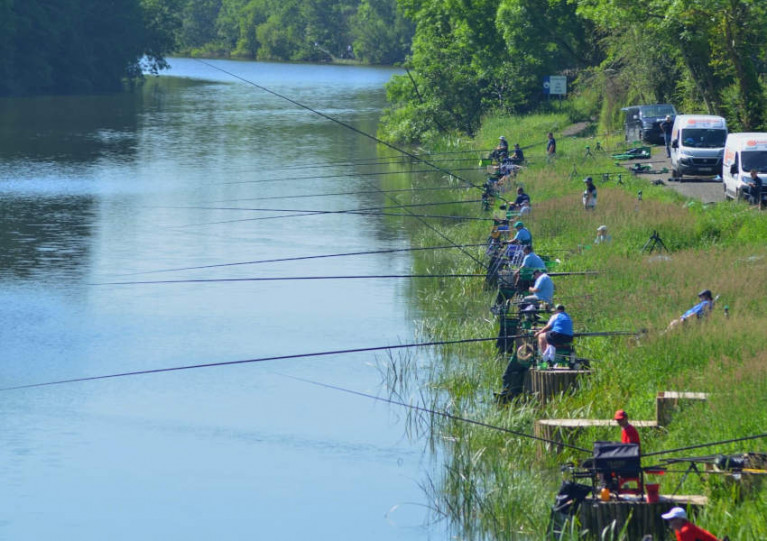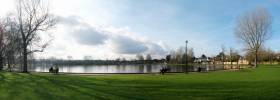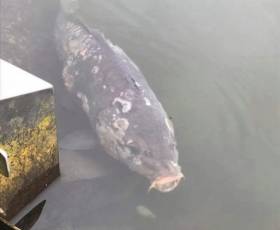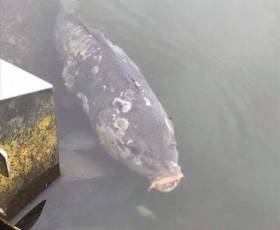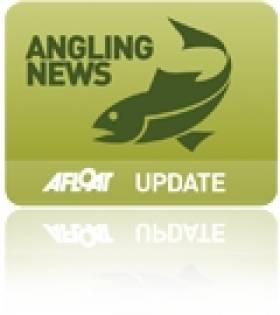Displaying items by tag: carp
Carp Anglers Fined for Fishing Offences in Northern Ireland
Two carp anglers convicted at Craigavon Magistrates’ Court for separate fishing offences have been fined a total of £430.
Samuel Seenan (42) of Altnagarron Mews, Belfast pleaded guilty to three breaches of legislation prescribed under the Fisheries Act (Northern Ireland) 1966 — namely unlicensed fishing, failing to provide his name and address and obstructing and impeding an authorised person.
Separately, Wayne Hull (51) of Ashmount Gardens in Lisburn pleaded guilty to two breaches of legislation prescribed under the Fisheries Act (Northern Ireland) 1966, namely unlicensed fishing and failing to provide his name and address.
On 20 March 2022, DAERA fisheries protection officers were on routine patrol of Mill Lodge carp fishery in Dromore, Co Down. This fishery is owned by the Northern Ireland Carp Angling Society (NICAS).
During their patrol, they observed Seenan setting up fishing rods. Seenan was then approached by a DAERA fisheries protection officer and asked that he provide his details so a check of the online system could take place to confirm there was a license in place for each of his fishing rods.
Seenan was aggressive and confrontational during these requests and continually refused to comply, the court heard.
After numerous requests were ignored, the PSNI was called to assist. With the PSNI assistance, Seenan then provided his details.
Due to his constant refusal to provide details initially, and that there was no fishing licence in place during the initial request to provide his details, all fishing equipment belonging to Seenan was seized.
The total fine of £315 consisted of fines ranging from £50 to £200 for each offence along with an offender levy of £15.
In a separate incident, when Hull was approached and asked for his details, he explained that he was an officer of the club and that all fishing licenses had been checked previously for all anglers present.
Hull then provided a false name, along with two different dates of birth, the court heard. When asked again to provide his correct details, a follow-up check confirmed that Hull had no current fishing license and was fishing illegally.
Hull’s total fine of £115 consisted of two fines of £50 for each offence along with an offender levy of £15.
DAERA says it is committed to pursue those who fish illegally. If you are aware or suspect illegal fishing, DAERA Inland Fisheries can be contacted at (+44) 0300 200 7860 or outside office hours (+44) 0800 807 060.
Council Pours Cold Water On Carp Anglers’ Demands For Loughgall Lake
Plans by Armagh’s council to restock Loughgall Lake with £12,000 worth of carp have been deemed insufficient by local anglers.
According to ArmaghI, the Loughgall Carp Anglers group believes night angling catch rates would rise — and its membership would skyrocket — with a £50,000 investment in the Northern Ireland fishery.
But Armagh City, Banbridge and Craigavon Borough Council poured cold water on the suggestion as the funds are not available in the budget — while noting that Loughgall Lake is a mixed fishery intended to cater or all coarse angling enthusiasts.
It was also identified in a 2017 survey that the majority of fish were in the centre of the 37-acre lake, out of reach of shore anglers.
ArmaghI has much more on the story HERE.
€200K To Restock Cork City Carp After Virus Outbreak
#Angling - The cost of replacing lost carp at The Lough in Cork city centre could be more than €200,000, according to the Irish Examiner.
Inland Fisheries Ireland responded to reports of a fish kill at the popular catch-and-release coarse angling venue on Friday 4 May.
Sample fish examined by scientists at the Marine Institute tested positive for carp edema virus, or CEV, which causes ‘koi sleepy disease’.
It’s since emerged that more than 750 carp were lost in the outbreak at The Lough, which hundreds more removed from the private Belvelly fishery near Cobh.
However, according to the Cork Carp Anglers Club, restocking cannot happen before issues with biosecurity and water quack are dealt with.
The Irish Examiner has more on the story HERE.
Cork City Fish Kill: Carp Test Positive For Edema Virus
#Angling - Scientists of the Fish Health Unit at the Marine Institute have advised that sample carp taken from The Lough and Belvelly Lake in Cork have tested positive for carp edema virus, or CEV.
The poxvirus causes a disease known as ‘koi sleepy disease’ in both koi and common carp.
The fish kill was first reported at The Lough in Cork city centre last week, with subsequent reports at Belvelly Lake in Cobh. Some 450 carp were removed from the former, and over 20 from the latter, as well as live samples from both for analysis.
At present, while tests are ongoing and further tests are carried out on the CEV detected, this is being treated as a ‘suspect positive’ and is not confirmed as the causative agent of the mortalities until all tests have been completed.
Inland Fisheries Ireland (IFI) recommends that stringent biosecurity protocols continue to be implemented. All mortalities continue to be removed and disposed of in a bio-secure manner.
Angling remains suspended at both locations, as well as at Inniscarra and Carrigadrohid Reservoirs.
#Angling - Inland Fisheries Ireland yesterday (Friday 4 May) responded to reports of a fish kill at The Lough in Cork city centre.
The reports were received from Cork Carp Anglers Club who recorded a number of dead fish at this iconic Cork carp fishery.
Initial investigations by IFI indicate the cause of death to be a fish health issue, with a bacterial or fungal infection suspected of causing the mortalities.
It is estimated that in the region of 200 carp have been infected in this outbreak.
A small number of live fish have been securely transported to a specialist fish health unit to identify the infectious agent.
All dead fish that have been collected are being held in cold storage at an IFI facility pending the outcome of tests to determine the exact cause of death.
Anglers are requested to suspend all fishing activity at the lake until further notice.
Any anglers who have been fishing the venue in the last month are advised to carry out appropriate disinfection of their landing nets, fish mats, footwear and other gear that may have become contaminated, to prevent the spread of the disease to other fisheries.
Angler Catches Ireland's First 40lb-Plus Carp
#ANGLING - Angling Times reports that an Irish angler has caught the biggest carp ever recorded in the country.
Andrew Doyle landed the 40lb 2oz monster known as Big Hole at Maynooth Fishery in Co Kildare recently.
The intrepid fisherman caught the mirror carp during a 72-hour session using a "boilie hookbait fished in conjunction with a PVA bag of freebies over a bed of hemp and corn".


























